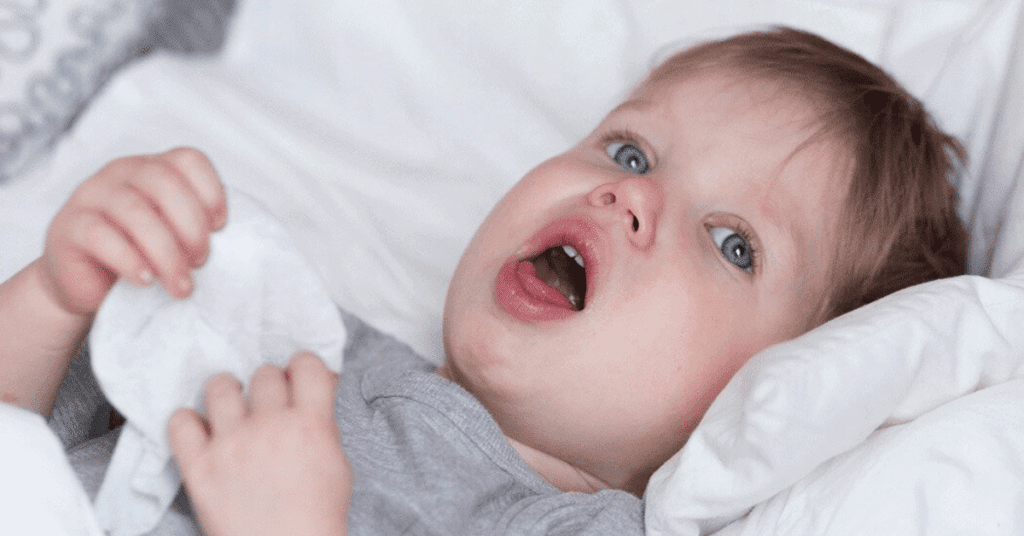Whooping cough is a contagious upper respiratory disease (also known as pertussis) due to the bacteria Bordetella pertussis; it leads to severe coughing and spreads quickly from one person to another.
Have you ever heard about whooping cough? It is not just an ordinary cough; rather, it entails some prolonged periods of coughing spells before producing a whoop sound emitted while breathing in. This is exactly opposite compared to the normal cold symptoms; thus, it should be noticed early!
But here is the good news: whooping cough can be easily prevented through simple vaccination. When caught early, physicians will prescribe a relieving medication. Always make sure to wash your hands and make timely vaccinations to keep healthy and protected!
Symptoms of Whooping Cough
Symptoms often resemble those of a common cold during the initial stages of whooping cough. You will certainly have a runny nose along with sneezing and mild fever, as well as a dress rehearsal of a light cough. In about a week or two, this cough fades away, then suddenly gets worse. It develops into long spells of coughing.
Coughing turns into high-pitched whoops when the person gasps for breath after coughing. Specifically, that sound almost never occurs in infants, but sometimes they hold their breath during a coughing episode. These symptoms may stretch to several weeks, making it hard for some people to sleep, eat, or even breathe correctly.
| Early Symptoms | Later Symptoms |
| Runny nose, mild fever | Severe coughing fits |
| Occasional mild cough | High-pitched whoop sound |
| Sneezing | Vomiting after coughing |
How Whooping Cough Spreads and Its Causes

Whooping cough is transmitted via small droplets expelled during coughing or sneezing by someone who is infected. Additionally, bacteria can spread through direct contact, such as sharing personal items or utensils. Hence, schools and workplaces are major sites, along with homes, where the disease may be transferred from one person to another.
The main cause of the disease is Bordetella pertussis bacteria, which enter the body and then attach to the airways, causing inflammation. The irritation of these bacteria continues, leading to cough fits that last for long periods of time if no treatment is given.
Treating Infants for Whooping Cough

Severe illness can occur in infants, followed by hospitalization. Treatment in such cases usually involves antibiotics to kill the bacteria and stop its growth.
Straightforwardly, infusions of fluids or oxygen therapy may be required in such serious cases. Preventive medicines are also given to families so that the child would not be exposed. Prevention of life loss and complications for infants, such as pneumonia, can be achieved if a patient is treated early.
Whooping Cough Treatment in Adults
Like babies, the majority of adults use antibiotics to treat whooping cough.With these medicines, the duration of the disease is shortened and becomes less contagious. The cough spells may remain for weeks, even after treatment.
If you are a coughing adult, rest is the best treatment. Keeping away from strenuous activities that can worsen the symptoms is also advised. Occasionally, still, these adults may need some additional tests, such as a chest X-ray test, to rule out other illnesses.
Self-Care During Whooping Cough
Take care of steps at home besides antibiotics, managing the infection caused by bacteria. Keep your throat hydrated by consuming sufficient water, which can minimize irritation. Diffuse a humidifier so that breathing is easy at night.
Rest enough because coughing brings a weak and tired feeling with it. Refrain from any kind of smoking or staying around it. It makes any symptom, such as cough, worse. These really are very simple ways to prevent coughing, and you will also get better faster.
Prevention of Whooping Cough
Immunizing individuals is certainly the most effective way to prevent whooping cough. Every child receives their DTaP, or diphtheria-tetanus-pertussis vaccine, as part of the routine vaccines for children. Young teenagers and adults need to receive booster doses as well. Pregnant women should get the pertussis vaccine specifically in the third trimester to protect their newborns.
An alternative to that is to wash your hands thoroughly and always avoid anybody who is coughing, as this can also prevent the transmission of the disease. At the same time, protecting the vulnerable population, infants and seniors, against contracting any sort of infection by using preventive means.
| Group | Recommended Vaccine |
| Infants and Children | Diphtheria-tetanus-pertussis vaccine (DTaP) |
| Teens and Adults | Booster shots for adolescents and adults |
| Pregnant Women | Immunization during pregnancy |
FAQs
What is whooping cough?
Whooping cough, or pertussis, is a severe respiratory tract infection caused by the Bordetella pertussis bacterium, with severe coughing culminating in a high-pitched whoop on inspiration between paroxysms.
How does whooping cough spread?
Whooping cough is spread by airborne droplets produced by the act of coughing or sneezing of an infected person. Contact with a person infected with the bacteria can also lead to infection via touching or by sharing food.
What are the symptoms of whooping cough?
Typical early symptoms of whooping cough can include a runny nose, mild fever, and a light cough. This acute severity increases into a period of intense coughing and then produces the other identified symptom: a high-pitched whoop.
Is whooping cough dangerous to an infant?
Yes, whooping cough is particularly dangerous to infants. In fact, they are at risk for serious illness, including pneumonia and difficulty breathing. Immediate treatment and proper vaccinations for mothers-to-be would ensure health safety for newborns.
How do adults get treated for whooping cough?
Adults, too, receive some form of antibiotic therapy. It is your body’s way of getting rid of whooping cough, but maybe it would take a few weeks to recover. Usually, the coughing attacks last for a few weeks. Resting and looking after yourself at home would be important to recovery.
How to Care for Yourself with Whooping Cough?
The home therapy includes drinking lots of fluids with the use of a humidifier and resting to bring relief from symptoms. Avoid smoking, as it aggravates cough. Self-care measures thus will hasten the recovery process.
Conclusion
The cough whooping is a very contagious disease, and yet, the infection can almost easily be avoided and treated with the proper course of therapy. The best way to guard yourself and your family against this infection is by early recognition of the symptoms of whooping cough and immediate treatment combined with up-to-date vaccination. A vaccination like DTP, or diphtheria-tetanus-pertussis vaccination, will prevent or minimize the severity of disease induced.
Immediate action is very important for newborn babies. These can prevent life-threatening complications like pneumonia or trouble breathing by early diagnosis and treatment. Proper hygiene, vaccination, and being provided with whooping cough information all contribute to the success of stopping the disease from spreading and to healthy and safe people around you.
